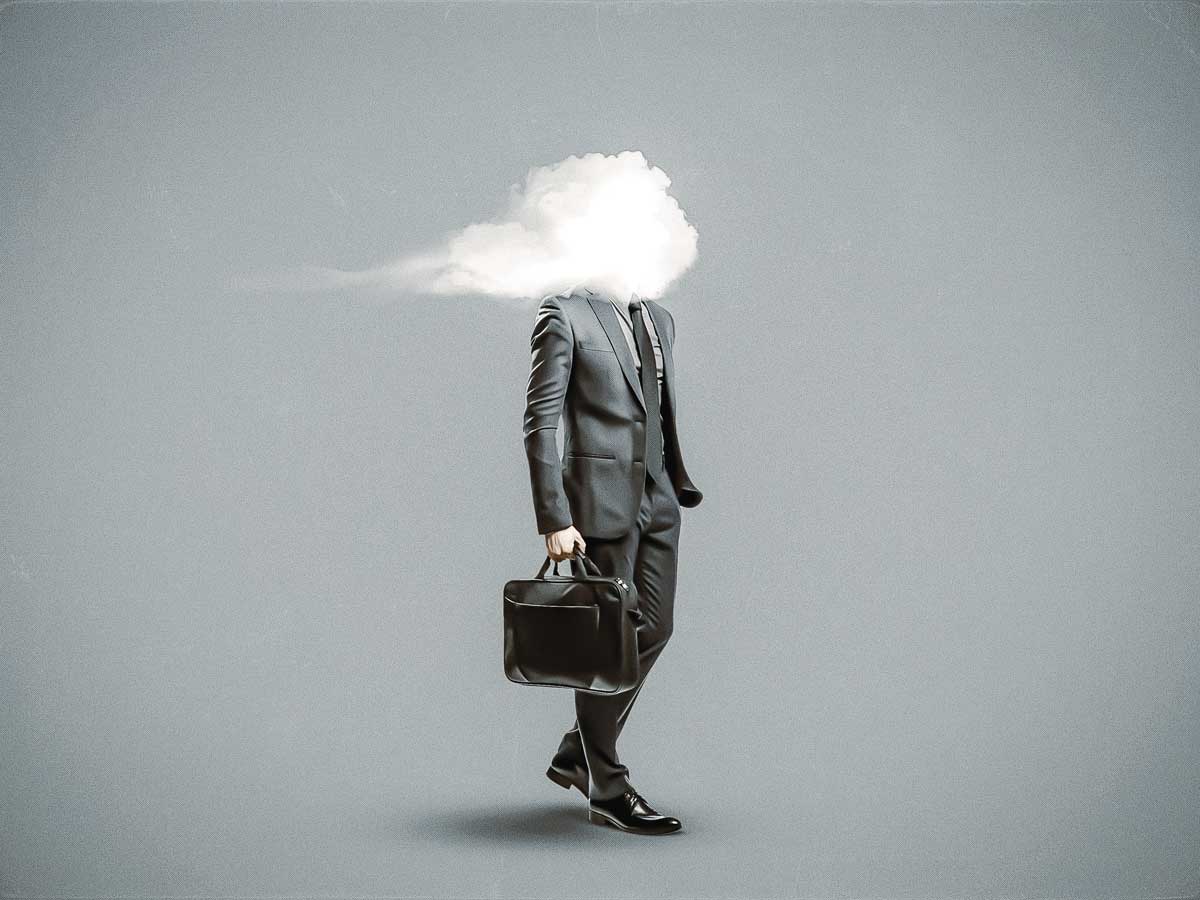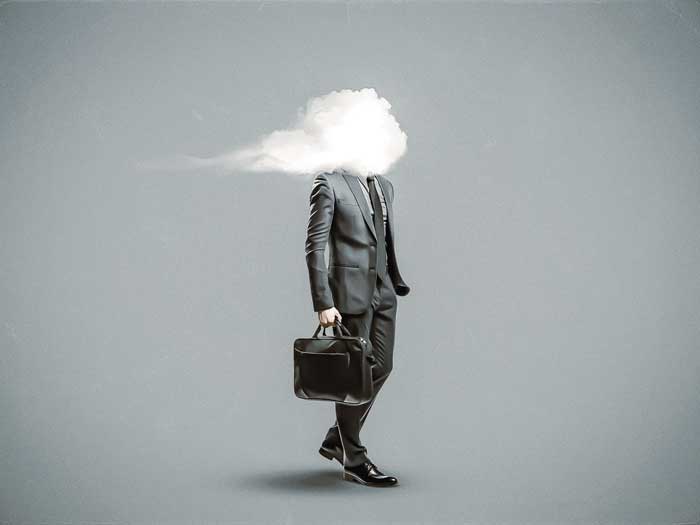
A growing industry of health start-ups are focused on brain power
 In a recent poll, 54 per cent of Canadians said their mental health is worse than it was at the beginning of the pandemic (Illustration by Dan Parsons)
In a recent poll, 54 per cent of Canadians said their mental health is worse than it was at the beginning of the pandemic (Illustration by Dan Parsons)
If you feel like you can’t remember anything anymore, you’re in good company. According to a handful of experts, including Karl Szpunar, director of the Memory Lab at Toronto Metropolitan University (formerly Ryerson University), the pandemic has increased the number of Canadians who say they feel like they have brain fog. Szpunar attributes it to the increased stress and sleep disruptions that stem from living under the weight of COVID-19. Other, more serious mental issues, like burnout, anxiety and depression, are also on the rise. In a recent Angus Reid poll, 54 per cent of Canadians said their mental health is worse than it was at the beginning of the pandemic.
And, while the past few years have been a drain on mental health and mental health supports, a wave of brain-boosting start-ups have come to market offering various kinds of relief. They’ve been growing in type and number over the past 10 years, which accelerated during the pandemic.
Take, for example, a new medical technology called transcranial magnetic stimulation (TMS). It uses a wand that, when placed over the head, creates a magnetic field to stimulate the nerves below it. According to Lisa Murray, an occupational therapist and co-owner of Neuromed Clinic in Edmonton, which offers the treatment, TMS “induces plasticity in the brain,” stimulating the growth of new connections. Clinic in Edmonton, which offers the treatment, TMS “induces plasticity in the brain,” stimulating the growth of new connections. Clinic in Edmonton, which offers the treatment, TMS “induces plasticity in the brain,” stimulating the growth of new connections.
Murray’s clinic mostly uses TMS to treat people with clinical depression, an application that has the most evidence behind it. Proponents of TMS say that more than half of people who don’t respond to medications for depression will benefit from TMS, and about one-third will go into remission entirely. (Benefits however aren’t always permanent; treatment may need to be repeated.) The clinic also treats people with anxiety and will offer TMS to anyone who thinks it might be helpful, including those with general memory issues.
TMS’s brain-altering wand may sound futuristic, but the technology has had approval from Health Canada since 2002 for treatment-resistant depression. In addition to depression and anxiety, it’s also being used for conditions like burnout—which some researchers believe mimics depression, affecting working memory, and the ability to make connections and think quickly—chronic pain and even for gaining a cognitive edge in competitive sports.
And it’s becoming more mainstream. Lisa and her husband opened shop in 2017. “We were the first clinic in Edmonton and now there’s a handful,” Murray says, which includes public operators like the Alberta Hospital Edmonton and the Alberta Health Services’ Mental Health Clinics.
According to a market report from SharpBrains, an independent market research firm tracking health and performance applications of brain science, TMS is part of a growing market of brain-health technologies, along with neuro-monitoring (which may combine cardiac monitoring and brain stimulation), brain training (apps like Lumosity, which uses games to strengthen memory and speed up cognitive functions), and electroencephalograms or EEGs (electrodes that measure brain functioning). All these are a subset of the larger “brain health” market, which includes everything from meditating with biofeedback to mass-market cognitive training apps, evidence-backed sleep apps and brain-health supplements. (For a sense of scale, the brain supplements bucket alone was pegged by Grand View Research as being worth US $7.68 billion in 2021.)
While that overall market had been expanding for years, SharpBrains CEO Alvaro Fernandez says it was given a boost during COVID not only because people’s sleep and moods were disrupted but because they also had more time to try out wellness supports.
But three years into the pandemic, and amid concerns of a recession, start-ups are beginning to encounter difficulty finding funding. Fernandez believes that the growth line is flattening. “This year and next year things are slowing down,” he says.
More nimble tech will rise to the top, as he sees it. Apps like Breathe2Relax and HRV4Training, which use biofeedback gathered by the existing sensors in smartphones, are more scalable than technologies such as TMS. They’re mass market by design. TMS and similar technologies like tDCS, which acts in the same way as TMS but stimulates the brain with electricity rather than magnetic fields, may be promising but “they require clinical supervision for proper targeting,” he explains, “and also monitoring of potential side-effects.”
That comes at a cost. A session of TMS is typically priced at about $300 and a full course of therapy will run upwards of $6,000. For clients with treatment-resistive depression or anxiety, it can be worth it. For those with vaguer and less pressing concerns, like forgetting where they put the keys down, not so much.
HEALTH CHECK
Read about the future of telehealth services and one CPA’s mental health journey with depression.